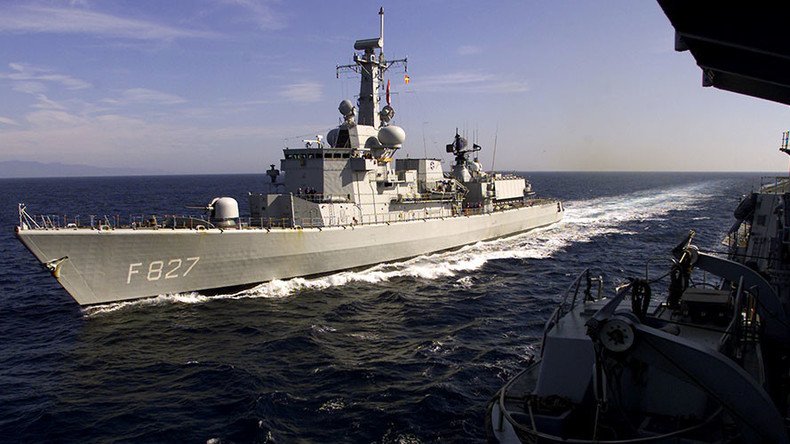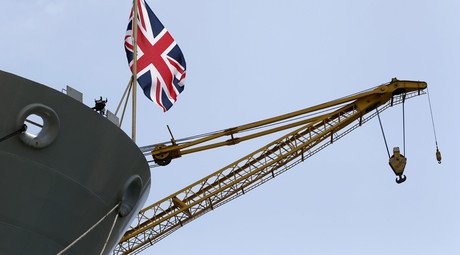'Operation Sophia': WikiLeaks releases classified data on EU military op against refugee flows

WikiLeaks has released a classified report detailing the EU's military operations against refugee flows in Europe. It also outlines a plan to develop a "reliable" government in Libya which will, in turn, allow EU operations to expand in the area.
The leaked report, dated January 29, 2016, is written by the operation's commander, Rear Admiral Enrico Credendino of the Italian Navy, for the European Union Military Committee and the Political and Security Committee of the EU.
The document gives refugee flow statistics and details of performed and planned operation phases of the joint EU forces operating in the Mediterranean.
RELEASE: Operation Sophia - classified report on EU military ops against #refugee flows https://t.co/dhnfmcMtlApic.twitter.com/NbgR1Kf6Fb
— WikiLeaks (@wikileaks) 17 февраля 2016
The report also places pressure on the responsible EU bodies to help speed up the process of forming a “reliable” government in Libya, which is expected to invite EU forces to operate within its territorial waters, and later give permission to extend EU military operations onshore.
"Through the capability and capacity building of the Libyan Navy and Coastguard we will be able to give the Libyan authorities something in exchange for their cooperation in tackling the irregular migration issue. This collaboration could represent one of the elements of the EU comprehensive approach to help secure their invitation to operate inside their territory during Phase 2 activities," the document states.
Admiral Credendino writes that the task force is ready to proceed to phase 2B despite political and legal challenges:
"...We are ready to move to phase 2B (Territorial Waters) where we can make a more significant impact on the smuggler and traffickers business model."
"However, in order to move into the following phases we need to have a government of national accord with which to engage."
"A suitable legal finish is absolutely fundamental to the transition to phase 2B (Territorial Waters) as without this, we cannot be effective."
"Central to this and to the whole transition to phase 2B, is an agreement with the Libyan authorities. Ultimately they have the casting vote on the legal finish which will in turn drive the transition to phase 2B and the appetite for Member States to provide assets. As a European Union, we must therefore apply diplomatic pressure appropriately to deliver the correct outcome," the document states.
The leak comes less than five months after it was reported that Operation Sophia would consist of 22 member states and 1,300 personnel which would board and seize suspect vessels in the Mediterranean.
However, the document notes that when the operation progresses into phases 2B and 3, "the smugglers will again most likely adapt quickly to the changing situation. The primary concern for smugglers will likely remain to avoid being apprehended so they can continue their illegal activities."
The operation's objective is primarily to disrupt smuggling routes by human traffickers, rather than to stop migration flows, according to the European Union Institute for Security Studies, which wrote in a document that the operation began on July 27, 2015.
The Institute noted, however, that there is a “real uncertainty on whether the operation will ever be able – for either legal or political reasons – to get to the core of its mandate, i.e. neutralising the smuggling networks through deterrence or open coercion, both off the Libyan coast and onshore.”
It went on to note that regardless of the operation's support for EU member states, only “a very few” are likely to “have the skills and experience for such missions, let alone the will.”
It also stressed that the operation cannot be a “solution” to the refugee crisis, and that “no one in Brussels is contending that it could.”
The document's release comes as Europe continues to face the worst refugee crisis since World War II, with the numbers of new arrivals expected to grow this year.













